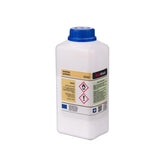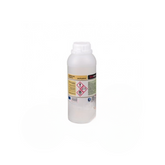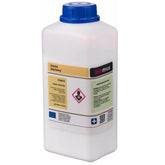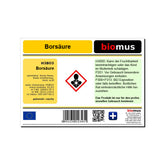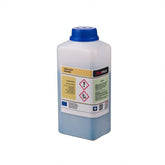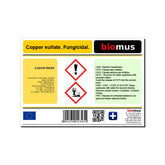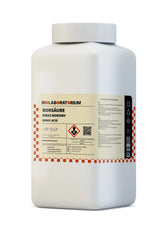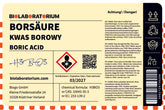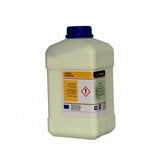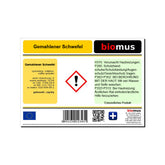Zinc stearate is a widely used technical additive employed in a variety of products and applications. As a salt of zinc compound with stearic acid, it offers a range of useful properties that make it a valuable component in industry. In this blog post, we take a closer look at the properties, applications, and safety aspects of zinc stearate.
What is Zinc Stearate?
Zinc stearate is a metal salt composed of zinc and stearic acid. It is a white, odorless powder that is widely used in industry. The chemical formula is Zn(C17H35COO)2.
Zinc stearate is formed when zinc oxide or zinc carbonate reacts with stearic acid. This produces the metal salt, which is used in numerous products due to its special properties.
Properties of Zinc Stearate
Zinc stearate is characterized by a range of useful properties that make it a valuable additive in industry:
Lubricating Properties
Zinc stearate has good lubricating properties and thus reduces friction and wear in mechanical systems. Therefore, it is used as a lubricant in paints, coatings, plastics, and rubber.
Hydrophobic Effect
The metal salt is water-repellent and gives products a hydrophobic surface. This makes it an important component in coatings, seals, and release agents.
Thermal Stability
Zinc stearate is thermally stable and can withstand temperatures up to 200°C without losing its properties. This makes it a suitable additive for heat-stressed applications.
Emulsifying and Thickening
Zinc stearate acts as an emulsifying and thickening agent, making it a useful component in creams, ointments, and pastes.
Antistatic Effect
Due to its electrically insulating properties, zinc stearate can reduce static charge. This is beneficial in plastic products and coatings.
UV Stability
The metal salt absorbs UV radiation and thus protects materials from yellowing and aging. This makes it an important additive in paints, coatings, and plastics.
Industrial Applications of Zinc Stearate
Due to these diverse properties, zinc stearate is used in numerous industrial sectors:
Plastics Industry
In plastic manufacturing, zinc stearate serves as a lubricant, release agent, and stabilizer. It improves the processability and surface quality of plastic products.
Paints and Coatings Industry
As a wetting agent, thickener, and antistatic agent, zinc stearate is used in paints, coatings, and finishes. It improves flow properties and adhesion.
Rubber and Tire Manufacturing
In the rubber industry, zinc stearate serves as a vulcanization accelerator and release agent. It facilitates the processing and shaping of rubber products.
Cosmetics and Pharmaceutical Industry
In creams, ointments, and pastes, zinc stearate functions as an emulsifier and thickener. It is also used in tablets and capsules.
Food Industry
As a release agent, lubricant, and anti-caking agent, zinc stearate is used in food processing, such as in the production of baked goods.
Electronics Industry
In electronic components and devices, zinc stearate serves as an antistatic agent and lubricant to reduce friction and wear.
Safety and Environmental Aspects
Zinc stearate is generally classified as safe when used as intended. It is non-toxic, non-irritating, and non-sensitizing. Nevertheless, some safety aspects should be considered:
- When handling zinc stearate powder, appropriate dust protection equipment should be worn to avoid inhalation.
- Due to its fat solubility, zinc stearate should not be swallowed in large quantities.
- Contact with the eyes may cause mild irritation, so eye protection is recommended.
- For the environment, zinc stearate is non-critical as it is biodegradable and does not bioaccumulate.
Overall, zinc stearate is a versatile and safe additive that is indispensable in numerous industrial products and applications. Its special properties make it a valuable component in modern production processes.


